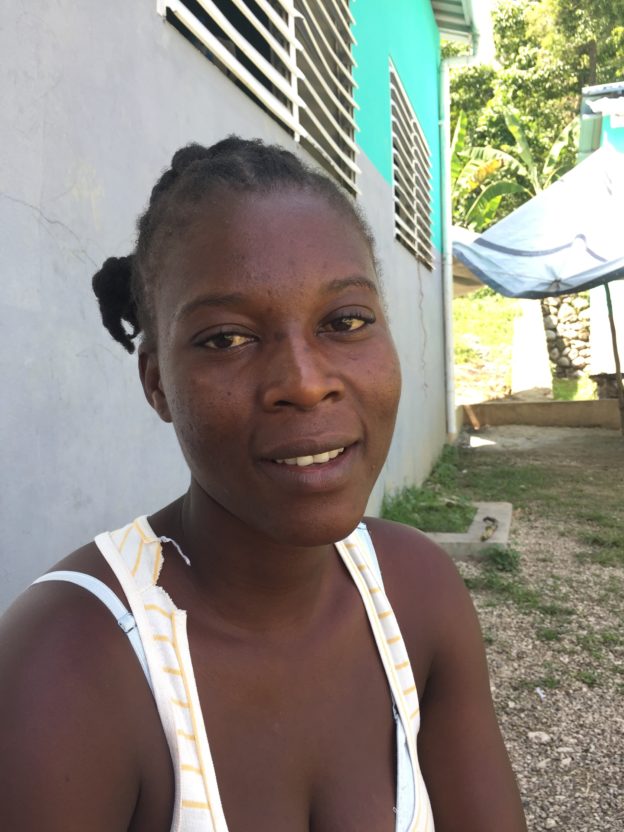Monise says, “Things aren’t really good yet, but they are on their way.” She is into her new house, even though there is still some work to be done. It needs windows and a new door. She bought the tree that will be used to cut the lumber for 750 gourds, or about $12, but she needs another 750 to pay the men who will cut down the tree and slice the trunk into planks, and she doesn’t have that money yet.
Her livestock is doing well, despite a recent setback. She started with just two goats, and got them up to five. One of the kids, the largest of the three, just got sick, however, contracting diarrhea. She and her mother treated it with the natural remedies they know, but the kid was dead within a day of the first symptoms. Now she’s looking at its mother, which never grew the way that Monise had hoped it would, and she’s thinking of selling it. She plans to add some money to whatever she can get for it, and then buying a bigger, healthier-looking nanny-goat.
Her pig has flourished. She initially chose to raise a male and fatten it up for sale, rather than having to deal with a sow and its litter of piglets. Her mother already had a healthy sow, and two sows producing piglets in the same yard seemed like it would be too much to handle. The pig has grown well, though, and should be ready for sale by the end of the year. If all goes well, she’ll get enough for it to buy a small cow.
We often encourage members, especially those relatively successful with a pig, to set aside some of the money from the sale to buy another small pig, but Monise wants to reserve all of the sale’s proceeds to buy the best cow she can. So, she made another plan. Her mother’s sow is pregnant, but the older women has said that she’ll sell it after it weans the current litter. It is, Monise said, getting old. But the two women like raising pigs, and they want to have a female in the yard, so Monise took 500 gourds and purchased a piglet from her mother even before the piglet is born. She plans to take a female. Buying the piglet so young will mean that Monise’s profit will be much farther down the road, but it also enabled her to get it for a quarter or even a fifth of what she would pay for a weaned female in the market, which was important because with the school year ready to start she’s short of cash.
She’s managed to buy uniforms for only two of her three school-age children so far, having finally faced up to the fact that she cannot count on the children’s fathers. But she’s not sure how she’ll pay for the third child. She’s still not back in small commerce, and won’t be able to start again until she can get her hands on some capital. She’d like to borrow it from her Village Savings and Loan Association, but she ended up paying late fees on the first loan that she took out, so the Association and her case manager, Martinière, with whom they consult closely, has been slow to agree to a second loan.
